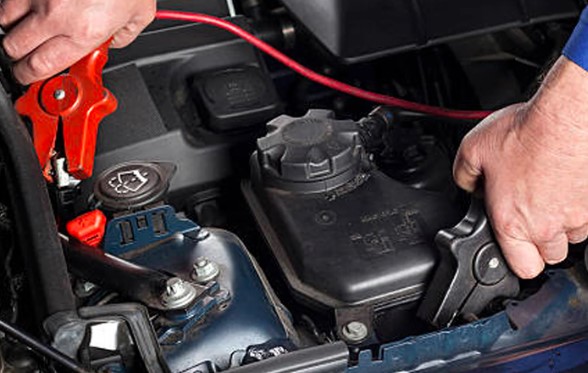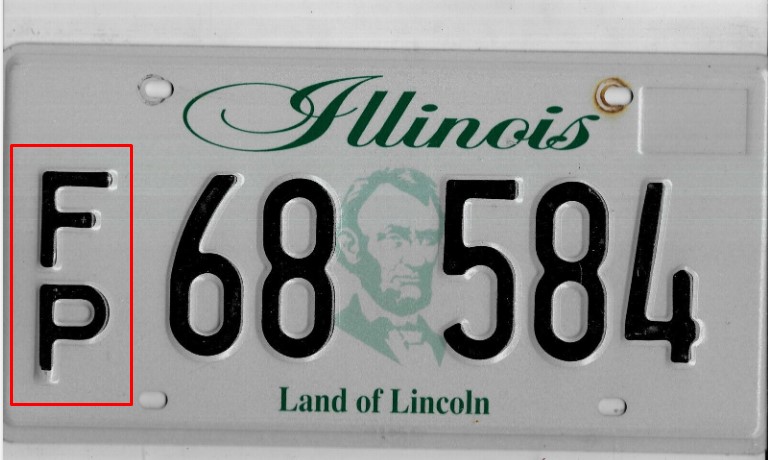Understanding the weight of car batteries is crucial for understanding charging infrastructure, maintenance regarding car battery management, and more.
So, how much does a car battery weigh? A typical car battery weighs between 40 and 60 pounds (18 to 27 kilograms). However, it is essential to note that the weight can vary depending on factors such as battery type, size, capacity, and construction materials.
Continue reading to learn more about the factors that contribute to the weight of car batteries. We will also discuss the different types of batteries and their corresponding weights and why knowing the weight of your car battery is essential.
How Much Does a Car Battery Weigh? What Factors Affect a Car Battery’s Weight?
The weight of a car battery is an important factor to consider when it comes to vehicle maintenance and performance. As mentioned, a car battery weighs between 40 and 60 pounds (18 to 27 kilograms). Also explore how much a jeep liberty weigh.
Several factors contribute to the weight of a car battery. They include:
- Battery Type
The weight of a battery is heavily influenced by its type. Each type has a unique chemical composition and construction materials, resulting in a range of weights. Lead-acid batteries, for example, typically weigh more due to the use of lead plates and acid electrolytes in their construction.
- Dimensions
The more cells a battery has, the heavier it tends to be. For example, a standard car battery typically consists of six cells. This is because batteries with larger capacities require more materials, which contribute to increased weight.
- Additional Features
Some batteries may have additional features such as handles, insulation, or protective casings. These elements add to the overall weight of the battery but provide additional convenience or safety features.

- Electrolyte Volume
The volume of the electrolyte, the liquid solution inside the battery, can influence its weight. Batteries with higher capacities or larger physical sizes often require more electrolytes. This is to facilitate the chemical reactions that generate electrical energy.
- Charge Level
A fully charged battery typically weighs more than a depleted or discharged battery. This weight difference is primarily due to chemical reactions that occur within the battery during the charging and discharging processes.
- Type Of Vehicle
Standard passenger cars typically require batteries weighing 40 to 60 pounds (18 to 27 kilograms). However, sports cars and performance vehicles may have higher power demands, resulting in slightly heavier batteries.
Types of Batteries and Their Weights
As we mentioned above, different types of batteries weigh differently. Here are the weights of car batteries regarding their types.
- Standard Batteries:
Standard car batteries, also known as lead-acid batteries, have been the traditional choice for many vehicles. These batteries are well-known for their affordability.
Standard batteries weigh between 40 and 60 pounds (18 and 27 kilograms). Their weight is primarily due to the lead plates and acid electrolytes used in their construction.
- Lightweight Batteries:
As automotive technology advances, lightweight batteries have gained popularity due to their high energy density and low weight. Lithium-ion batteries are a prime example of lightweight alternatives used in automobiles.
These batteries have excellent power-to-weight ratios, making them ideal for applications where weight reduction is critical. The weight of lightweight batteries can range from 10 to 30 pounds (4.5 to 13.6 kilograms), making them significantly lighter than standard lead-acid batteries.
However, investigate before purchasing one because your vehicle must be compatible with the battery’s power efficiency.
- Electric Vehicle Batteries:
EV batteries are larger and heavier than standard car batteries due to the high power requirements of electric vehicles. EV batteries weigh between 1,000 pounds to 2,000 pounds (453 to 908 kilograms).
The weight of an electric vehicle (EV) battery is determined by its dimensions and ability to store energy. For example, batteries with a capacity of 6 to 12 kilowatt-hours weigh 100 to 150 kg, whereas those with a capacity of 60 to 100 kWh weigh 350 to 600 kg.
However, it’s important to note that the weight of an EV battery is heavily influenced by the size and weight of the vehicle.
- Hybrid Batteries:
Hybrid vehicles use a combination of an internal combustion engine and an electric motor. These vehicles use hybrid batteries to store and deliver electrical power. Hybrid batteries are typically nickel-metal hydride (NiMH) batteries.
The weight of hybrid batteries is typically between 80 and 120 pounds (36 and 55 kilograms). These batteries are built to power both the internal combustion engine and the electric motor.
- Heavy-Duty Batteries:
Heavy-duty batteries are designed specifically for demanding applications such as buses, tractors, construction equipment, and tractors. These batteries are built to provide high-cranking power and to withstand harsh conditions. Heavy-duty batteries typically weigh between 130 and 170 pounds (59 to 78 kilograms).
Here is a video to help you out visually about car battery weight.
How Do I Figure Out A Car Battery’s Weight?
Calculating the weight of a car battery is a relatively simple process. Here are a few methods for calculating the weight of your car battery:
- Battery’s Label
Many car batteries have a label attached to them that contains important information, such as the battery’s weight. The label is usually found on the top or side of the battery casing.
Examine the battery for any markings or specifications indicating its weight. The weight can be expressed in pounds (lbs) or kilograms (kg).
- BCI Group Number
The Battery Council International (BCI) assigns group numbers to various battery sizes and types. These group numbers provide a standardized classification system for batteries used in various vehicles.
This number can be found on the battery’s side. You can refer to industry resources or online to identify the corresponding weight of the BCI group number of your battery.
- Manufacturer Specifications
The manufacturer’s specs are the most exact and dependable approach to determining the weight of a car battery. If the battery’s label is not easily visible, consult the manufacturer’s paperwork or website for the exact model of the battery.
- Weighing Scale
If you don’t have access to or are unable to obtain the manufacturer’s specifications, you can weigh the battery using a weighing scale. To ensure accurate measurements, it is best to use a scale with a higher weight capacity.
Allow the scale to stabilize and display the weight reading. Take note of the weight measurement provided by the scale.
Is The Weight Of Your Car’s Battery Important?
Matching the weight of your battery to the power requirements of your vehicle improves overall efficiency. An undersized or lightweight battery may struggle to provide adequate power to the electrical systems, resulting in suboptimal performance and potentially shorter battery life.
Additionally, in the case of a car equipped with a small engine, a bulky or heavy battery can diminish its efficiency. Therefore, it is important to note that an excessively heavy or light battery for your vehicle will have an impact on its overall performance.
Car Battery Weight Chart For Common Cars
Here are some examples of battery weights found in some of the best-selling cars and trucks.
| Vehicle | Battery Weight |
| Audi A5 | 57.3 lbs (26 kg) |
| BMW 3-Series | 45.3 lbs (20.54 kg) |
| Chevy Silverado 1500 | 42.1 lbs (19.1 kg) |
| Dodge Charger | 42.9 lbs (19.46 kg) |
| Dodge Durango | 53.6 lbs (24.31 kg) |
| Ford Explorer | 47.3 lbs (21.45 kg) |
| Ford F-150 | 47.3 lbs (21.45 kg) |
| Ford Mustang | 32.0 lbs (14.52 kg) |
| Honda Accord | 27.7 lbs (12.56 kg) |
| Honda CR-V | 39.0 lbs (17.69 kg) |
| Honda Pilot | 38.9 lbs (17.64 kg) |
| Jeep Wrangler | 53.6 lbs (24.3 kg) |
| Mazda CX-5 | 32.3 lbs (14.65 kg) |
| Nissan Rogue | 45.6 lbs (20.68 kg) |
| Ram 1500 | 58.0 lbs (26.3 kg) |
| Subaru Forester | 31.7 lbs (14.38 kg) |
| Toyota Corolla | 33.5 lbs (15.2 kg) |
| Toyota Highlander | 37.6 lbs (17.1 kg) |
| Toyota RAV4 | 33.5 lbs (15.2 kg) |
| Toyota Tacoma | 35.8 lbs (16.24 kg) |
Here are some electric car battery weights for known vehicles.
| Model | Battery Weight |
| GMC Hummer EV | 2,923 lbs (1325 kg) |
| Mustang Mach E | 1069 lbs (484.89 kg) |
| Ford F150 Lightning | 1,800 lbs (816.47 kg) |
| Audi E-Tron | 1,543 lbs (699.89 kg) |
| BMW I4 | 1,212 lbs (549.75 kg) |
| Tesla Model S | 1,200 lbs (544.31 kg) |
| Tesla Model 3 | 1,060 lbs (480.81 kg) |
| Tesla Model X | 1,183 lbs (536.6 kg) |
| Tesla Model Y | 1,168 lbs (529.8 kg) |
| Kia EV6: Wind Trim | 1,052 lbs (477.18 kg) |
| Volkswagen ID.4 | 1,086 lbs (492.6 g) |
FAQs
Here are other related questions you may want to know about car battery weight.
Q1. Are batteries hard to change?
If you’re not used to working on cars, you might be surprised by the weight of a car battery. One of the difficulties in moving a car battery is the initial position you find yourself in for lifting.
The battery in a truck may be slightly below shoulder height, while in a smaller car, it may be between your knees and waist. Leaning down with your back while attempting to lift something is a common mistake.
Q2. Does a heavier battery have a longer lifespan?
Battery lifespan is primarily influenced by its chemistry, usage patterns, and maintenance. The weight of the battery itself does not determine its longevity.
Q3. How long do car batteries last?
A car battery typically lasts 3 to 5 years. However, factors such as driving habits, weather conditions, vehicle usage, and battery maintenance can all have an impact on the actual duration.
Extreme temperatures, frequent short trips, and leaving electrical devices on when the engine is turned off can all contribute to a shorter battery life.
Conclusion
The weight of a car battery may appear to be a minor detail, but it has a significant impact on the overall performance and efficiency of your vehicle. Choosing the appropriate battery weight ensures that your vehicle operates at maximum output and efficiency.
The weight of a car battery reflects its power capacity, ensuring enough electrical power to meet the needs of your vehicle.
So, the next time you consider your car battery, keep in mind that its weight is more important than meets the eye. Take the time to understand and consider its weight, and you’ll reap the benefits of a well-matched battery that powers your vehicle with precision and efficiency.






